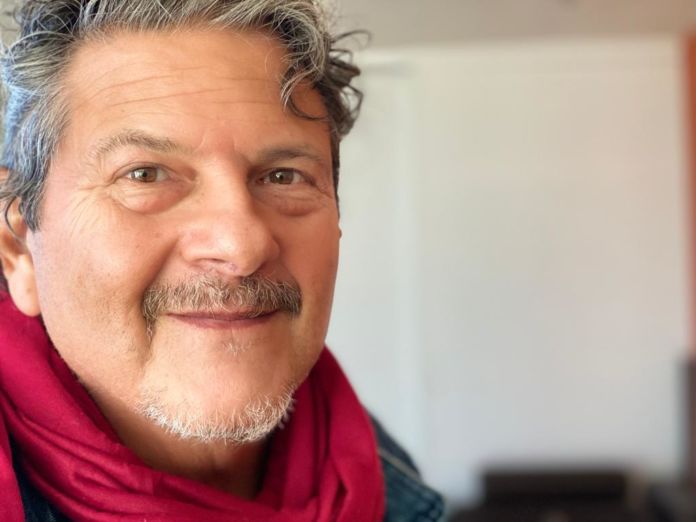Reed Brody is counsel with Human Rights Watch and a member of the International Commission of Jurists. He is known to Gambians for his work with the victims of ex-president Yahya Jammeh and his role in the campaign to bring to justice in Senegal the former dictator of Chad Hissène Habré. TFN asked Brody about The Gambia’s case against Myanmar at the International Court of Justice which held preliminary hearings on 10-12 December.
Q. What do you make of The Gambia’s decision to bring this case?
A. When we heard that The Gambia was actually going to do this, cheers went up from activists around the world. The slaughter, rape and displacement of hundreds of thousands of Muslim Rohingyas is one of the worst mass atrocities of our time. Before Gambia brought this case, these crimes had largely been beyond the reach of justice.
Q. What can this case achieve?
A. It has already achieved so much. For the first time, streamed live across the globe, and with Myanmar’s leader Aung San Suu Kyi sitting right there, The Gambia’s lawyers laid out, before the highest court in the world, the evidence pointing to Myanmar’s policy of genocide. People in the Rohingya refugee camps in Bangladesh, where they were chanting “Gambia, Gambia,” finally could feel someone was doing something. While the case may take many years to reach a final ruling, The Gambia asked for provisional measures which could be granted within a month, to stop Myanmar’s genocidal actions. And ICJ orders are legally binding. The long campaign to bring Hissène Habré to justice only reached its goal after Belgium got the ICJ to order Senegal to put him on trial.
Q. But why Gambia?
A. Why not? Should we always leave it to big powers to take these kind of bold international actions? That’s one of the reasons we’re in our current mess. And I think the fact that Gambia is now a democracy trying to come to grips with its own abusive past made it a good champion, as did the Minister of Justice’s personal experiences in Rwanda.
Q. Some people say that with all Gambia’s economic and political problems, why do we need to spend our energies on this?
A. First of all, the Organization of Islamic Cooperation is paying all the fees, so this doesn’t cost The Gambia anything. Indeed, the goodwill and positive publicity that The Gambia is garnering all around the world with this move will certainly comeback to benefit the people of The Gambia, in reputation and recognition.
Q. We’ve heard some victims of the former regime ask why the government is pursuing justice for the Rohingya but not for victims here at home.
A. Obviously, I sympathize with the impatience of many Gambian victims. My main work these days is helping develop a path to bring Yahya Jammeh and his henchmen to justice, and I know that every day without justice is a prolongation of their agony. But the two things aren’t mutually exclusive. We can push on both fronts.
Q. But isn’t it hypocritical by the government?
A. Without getting into value judgments, let me say this. No government has a clean record. When the United States levies sanctions against Jammeh and his family, or speaks out for the rights of the protesters in Hong Kong, we applaud, we don’t say “what about your treatment of Mexicans at the border?” If we can’t get imperfect governments to do the right thing every now and then, the human rights movement would collapse.
Q. Getting back to the ICJ case, what was your impression of the hearings on Gambia’s request for provisional measures?
A. The Gambia presented a compelling case. Gambia had a very tough burden of showing that Myanmar acted with “genocidal intent” but I think its legal team did a great job laying out the evidence. The team is headed by Paul Reichler, one of the most experienced advocates before the ICJ. I’ve known Paul since 1985 when he represented Nicaragua in its landmark victory against the United States for arming counterrevolutionaries seeking to overthrow the government. Back then, he introduced into evidence my report, the first one I ever researched, detailing the atrocities committed by those “contras” against Nicaraguan civilians.
Q. And Myanmar? Why do you think Aung San Suu Kyi represented her country herself?
A. This was clearly for domestic political reasons. With elections coming up there, she wanted to show her support of the military and also to align herself with the majority Buddhist Birmans who hate the Muslim Rohingyas and have mistreated them and denied them basic citizenship rights for over a century. But from an international standpoint, it was a disaster. Usually if someone accuses you of a terrible crime, genocide no less, you try to silence it or avoid talking about it. Here, she rushed to The Hague, guaranteeing the presence and attention of the world’s media. And she didn’t even pronounce the word “Rohingya” which Gambia’s lawyers pointed to as an illustration of how Myanmar denies the group’s very existence. It will also now be impossible for the Myanmar government to say it doesn’t regard the court as legitimate, and to try to ignore any order it may hand down.
Q. What next?
A. Because Gambia requested provisional measures, the court will likely rule in the next month. Then it will take a couple of years to get to the merits of Gambia’s claim.
Q. What’s your prediction?
A. It’s very hard to know. The ICJ is a very, conservative and traditionalist court. It’s mostly made up of former government ministers and it is very loath to step in to the affairs of sovereign countries. And the burden of asking it to do so on an emergency basis, before it has made a full inquiry into the facts, is a very heavy one. But Gambia made the case, I think, and the eyes of the world are on the court.




